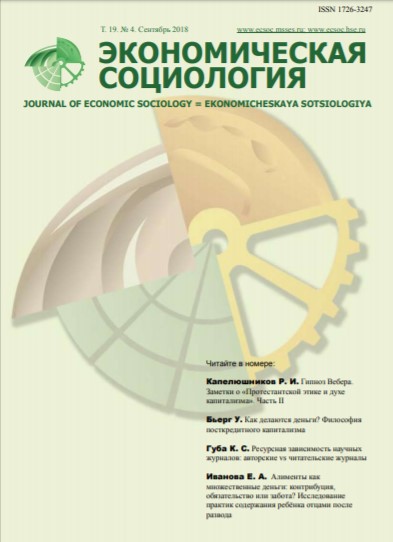What Influences Alcohol and Tobacco Consumption: Review of Economic and Sociological Concepts and Empirical Results
Abstract
Starting with classical theoretical works on the nature of addictive goods, an enormous amount of empirical research about determinants of a propensity to consume alcohol and tobacco is published annually based on data from different countries. We chose alcohol and tobacco among other addictive goods because of their high prevalence, their legality in the vast majority of countries, and the possibility of controlled consumption. In many countries and at the world level, measures are being developed to reduce the consumption of these products or to at least encourage more “responsible consumption” (this refers more to alcohol). Although the share of drinkers and smokers in Russia has fallen in recent years, Russia is still among the leaders in both alcohol and tobacco consumption. Despite government measures aimed at reducing alcohol and tobacco consumption, there is no certainty that the observed tendency towards a fall in numbers is the result of this policy and not of other factors, e.g., the effect of a cohort or a change in values towards a healthy lifestyle. Therefore, despite the existing reviews devoted to addictive behavior, we consider it important to return to systematizing explanations for the causes and determinants of the demand for addictive goods. The specificity of this paper is also that we consider the factors affecting both alcohol and tobacco consumption, although they are traditionally considered separately. However, both tobacco and alcohol are so-called addictive goods; therefore, the economic and sociological concepts that explain commitment to them are the same. Empirical studies also use a similar type of model. This review shows similar patterns in the demand for alcohol and tobacco and social and economic determinants. The factors of demand for these goods could be divided into economic, individual, socio-cultural, and external environmental factors (as well as biological factors that are not considered in this paper). The Russian data primarily confirms the theoretical assumptions and empirical results obtained for other countries. It could be concluded that a certain characteristic of Russian consumers is a weaker effect of prices on demand for these goods.













